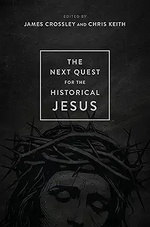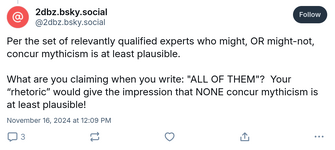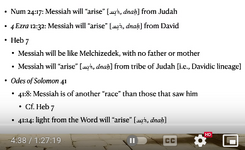[box=white]23 Just then there was a man in their synagogue with an unclean spirit; and he cried out, 24 saying, “What business do we have with each other, Jesus Nazarene? Have You come to destroy us? I know who You are—the Holy One of God!” 25 And Jesus rebuked him, saying, “Be quiet, and come out of him!”[/box]
[box=white]Judges 13: 5 for behold, thou art with child, and shalt bring forth a son; and there shall come no razor upon his head, for the child shall be nazir to God from the womb; and he shall begin to save Israel from the hand of the Philistines. 6 And the woman went in, and spoke to her husband, saying, A man of God came to me, and his appearance was as of an angel of God, very dreadful; and I did not ask him whence he was, and he did not tell me his name. 7 And he said to me, Behold, thou art with child, and shalt bring forth a son; and now drink no wine nor strong drink, and eat no unclean thing; for the child shall be holy to God from the womb until the day of his death.[/box]
[box=white]Judges 11: 12 Now Jephthah sent messengers to the king of the sons of Ammon, saying, “What is between you and me, that you have come to me to fight against my land?” 13 The king of the sons of Ammon said to the messengers of Jephthah, “Because Israel took away my land when they came up from Egypt, from the Arnon as far as the Jabbok and the Jordan; therefore, return them peaceably now.”[/box]
[box=white]Judges 11: 5 When the sons of Ammon fought against Israel, the elders of Gilead went to get Jephthah from the land of Tob; 6 and they said to Jephthah, “Come and be our chief that we may fight against the sons of Ammon.” 7 Then Jephthah said to the elders of Gilead, “Did you not hate me and drive me from my father’s house? So why have you come to me now when you are in trouble?” 8 The elders of Gilead said to Jephthah, “For this reason we have now returned to you, that you may go with us and fight with the sons of Ammon and become head over all the inhabitants of Gilead.”
Judges 11: 30 Jephthah made a vow to the Lord and said, “If You will indeed give the sons of Ammon into my hand, 31 then it shall be that whatever comes out of the doors of my house to meet me when I return in peace from the sons of Ammon, it shall be the Lord’s, and I will offer it up as a burnt offering.” … 34 When Jephthah came to his house at Mizpah, behold, his daughter was coming out to meet him with tambourines and with dancing. Now she was his one and only child; besides her he had no son or daughter. 35 When he saw her, he tore his clothes and said, “Alas, my daughter! You have brought me very low, and you are among those who trouble me; for I have given my word to the Lord, and I cannot take it back.” … 39 At the end of two months she returned to her father, who did to her according to the vow which he had made;[/box]



 Now I’ll give it a read.
Now I’ll give it a read.


